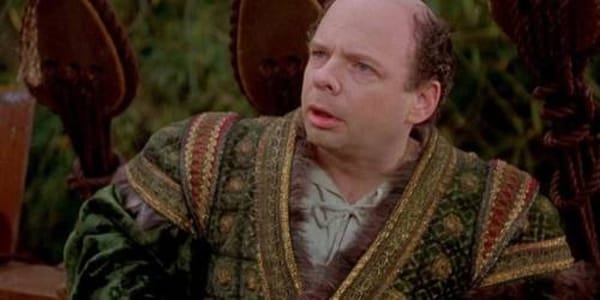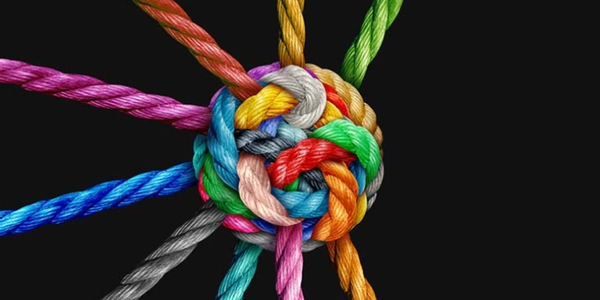Weekend Edition: The Disenchanted, the Misenchanted, and the Re-enchantment of America
How we think about what's not working in our civic life might offer a very different long-term path to something better even while the short-term demands we live in and confront our unrelentingly dysfunctional present as directly as we can.

Reading most political commentary, we might expect to find an American civic life that is defined by dysfunctional political discourse, dominated by partisanship and radicalization, exacerbated by electoral systems and parliamentary rules that encourage extremism, and inflamed by information systems that reinforce tribalism and media systems that benefit from a focus on conflict with no regard for the scope or scale or representativeness of what they cover. But this narrative misrepresents both the nature and the scale of our dysfunction in ways that not only make it difficult to diagnose and address, but also make it more likely to push more everyday folks out of civic participation at all.
The truth is that the lives of most Americans are not consciously defined by political experiences. Most people are increasingly disconnected from civic life — opting out of voting, opting out of our major political parties in record numbers, stepping back from issues they care about out of fear of attack. According to the long-running Gallup partisanship poll, near-record low numbers of Americans affiliate with either the GOP or the Democratic Party. But these same people mostly remain deeply engaged in their community lives in all kinds of ways – from their kids sports to PTAs to volunteer fire departments to civic groups like The Lions and The Rotary to community service volunteering and mutual aid networks. These same people who are opting out of “politics” continue to opt in to “civic life” at least in part because their day-to-day lives are not dominated by the partisan conflict and social radicalization that supposedly dominates American civic culture.
The Disenchanted
Most Americans I interact with across a broad and diverse set of communities all over this country believe in the core principles of our democratic culture — self-determination, self-government, pluralism, a deep recognition of our interconnectedness, and a commitment to civic duty. They want to be part of our democratic institutions. They want to vote. They want to participate in civic life. They want to have a sense of civic pride and find meaning and belonging from their connections to community and to the work of serving others. In fact they do all those things in their local communities in big and small ways everyday, they just don’t connect that day-to-day service to larger political or civic systems. Systems that seem hopelessly disconnected from their day-to-day experience and that seem focused on performance over delivery and dominated by the extremes of our civic discourse — both in priority and tone.
After years of exclusion, isolation, and frustration, a majority of Americans are now so disenchanted with our national political life that they are at risk of disengaging from their local civic lives as well. Volunteerism is down but not gone. The sources and causes of that disenchantment vary wildly across disparate communities, but the emotions and social psychology is shared. Participation in small community engagement is required for communities to function. Our communities rely more on mutual aid and other mechanisms of community-driven unpaid work than we realize. No matter how we nationalize our public discourse and public systems, mutual aid and volunteerism still make many of our local systems work. People need community. And contributing to their communities allows people to them to feel like valuable contributors to expanding the lives of others.
The Disenchanted now makes up a large majority of the country even as some fully disengage from civic life altogether. This majority is a complex community of communities that is defined by a very similar set of emotions that are derived from very different and distinct disenchanting experiences across different communities. There is an important opportunity for bridging between disconnected communities and discovering unexpected allies across that diversity of experience. Recognizing similar emotional responses to our current dysfunction allows us to embrace other communities as allies. The world is full of allies – despite what we're told and despite the hyperpartisan radicalization narrative that drives the group I call The Misenchanted who dominate our dysfunctional politics.
The Misenchanted
Too many of the people who do still affiliate with either major Party are increasingly partisan, increasingly ideologically polarized, increasingly likely to demonize their opponents as evil, and focused more often on ideologically pure political performance art and winning at all costs than on service. Their willingness to subvert democratic culture and norms to win make a system of government built on faith more and more fragile. These hyperpartisans are deeply misenchanted by their own radicalization as each party takes on its own, different dysfunctional affects. The violent fringes of the GOP have been mainstreamed to the point where one of our two major parties is now actively authoritarian and widely open to political violence as a valid strategy of political opposition and now active oppression. The Democratic Party on the other hand seems to be in a slow-motion collapse closer to sclerosis, paralysis, and a lack of ambition than any particular or proactive failure. While some people take that as evidence that we need another major party or for a rising “third party movement” of some kind, I don’t think turning a two-party death match into a three-party death match is going to solve our civic dysfunction. We need a broader reimagining of the purpose of party and the culture of the political components of our shared civic life.
Within The Misenchanted, we see three distinct groups: a very small, but loud and dangerous minority of extremists who are deeply anti-democratic and open to violence as a valid tool of political conflict; a slightly larger number of hyperpartsan political leaders and operatives who have fully embraced their own misenchantment not only as a fact of and resposne to experience, but also as a valid, strategic path to power; and a much larger set of rank-and-file citizens buying into this misenchantment who have been misguided by these other two groups and had their disenchantment exacerbated and even validated by unhealthy media systems built to monetize outrage and conflict into a collective momentum of misenchantment that seems to radicalize them further.
Re-enchantment
If disenchantment is the dominant experience of civic life for most driven by a misenchanted few, then a new path must be defined by the re-enchantment of civic life. Enchantment isn’t about magic or mass delusion. It's not religious in nature. It is, instead, about breathing life into the principles and practices that lead us toward a healthy, vibrant civic life and making our civic life sacred as in important, venerated, earnest, and joyous. This re-enchantment begins with stories that help us reclaim a civic culture we can believe in and that then help us embrace a sacred attitude toward the things that bring us together. We can then leverage that culture to reinvest in the mechanisms we use to share power and make decisions in our democracy like protecting elections as the sacred civic rituals of how we share power in order to do things together we cannot do on our own they ought to be rather than the competitive, legalistic, pugilistic competitions to be used and abused to gain personal power they have become. The spark of hope and optimism that keeps people helping each other, keeps people engaging in their local volunteer fire departments, PTA, and food pantries, and keeps people hoping for something better is the source we need to fuel in order to reclaim our civic life.
We breathe life into that spark by creating healthy civic rituals that not only remind people that diverse community can work but also invite them to experience how a fundamentally different civic culture feels. Civic life can deliver results that matter for people and be joyful – it can be resacralized if we seek it. Explaining and understanding new civic culture as an intellectual or theoretical exercise no matter how rigorous is insufficient to transcend the skepticism and cynicism of The Disenchanted. The more heterogenous our communities, the more creative and adaptive they are, but only when we embrace that diversity as a source of opportunity and connectedness, not as a threat. Civic culture that is sacred and earnest gives us rituals that build connection, deliver on promises, and offer us civic spaces — physical, informational, and virtual — that reveal togetherness and reinforce the principles of healthy democratic culture: self-government, self-determination, pluralism, and interdependence. These experiences are the beginning of the re-enchantment of a civic culture that we are craving. New experiences that feel different than the disenchanting dysfunction that is pushing us out of civic life. The re-enchantment is always available whenever we are ready to begin.
Last updated: 21 Apr 2025




